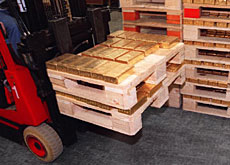Government reignites debate over excess gold

The cabinet has put forward plans to share the proceeds from the sale of its excess gold reserves between the federal government and the cantons.
Last year, voters rejected two proposals to use some of the money to fund humanitarian projects and to boost the state pension scheme.
The Swiss National Bank holds 1,300 tons of excess gold in its reserves, estimated to be worth between SFr18 billion and SFr20 billion ($13 billion and $14.4 billion).
Some 840 million tons had already been sold by the end of July, netting SFr12.7 billion.
Under the government’s proposal, the money raised from the sale of the gold would go into a fund, accruing interest of up to SFr500 million a year.
This money would then be distributed: a third to the government and two-thirds to the cantonal authorities.
This system would continue for 30 years, at which point the government would review the policy.
The proposal, which was put to parliament on Wednesday, also needs to be approved in a nationwide vote.
Mixed reaction
Wednesday’s government proposal split Switzerland’s political parties. The centre-right Christian Democrat and Radical parties said they supported the move.
However, they wanted assurances that the government would use its share of the money to repay debts or reduce taxes, and that the cantons’ share would be distributed fairly.
Meanwhile, the centre-left Social Democrats and the rightwing Swiss People’s Party came out against the plan.
“We are against this proposal and we will fight against it,” said Jean-Philippe Jeannerat, spokesman for the Social Democrats.
Both parties said some of the money should go to the state pension fund instead. But the government has opposed that proposal.
No charity
It is not the first time the question of what to do with the proceeds from the sale of Switzerland’s excess gold reserves has been raised.
In September 2002, the Swiss population rejected two proposals.
One was a government plan to divide the money equally among the state pension scheme, the cantons and the so-called Solidarity Foundation, which would support humanitarian causes both at home and abroad.
A counter-proposal, by the People’s Party, wanted to see all the money spent on the state pension scheme.
Following the public’s rejection of the two proposals, new ideas on how to distribute the proceeds emerged.
In October a group of non-governmental organisations suggested that a share of the money should be used to fund “sustainable education” projects for young people.
The Radical party said two-thirds should go to the cantons and the remaining third to the state pension fund.
However, the government stressed on Wednesday that it was opposed to any of the money going towards financing pensions.
swissinfo with agencies
The Swiss National Bank has 1,300 tons of excess gold reserves.
The sale of the gold reserves would provide between SFr18 billion and SFr20 billion ($13 billion and $14.4 billion) in capital.
The yearly interest accrued on the proceeds from the sale is estimated to be up to SFr500 million.

In compliance with the JTI standards
More: SWI swissinfo.ch certified by the Journalism Trust Initiative










You can find an overview of ongoing debates with our journalists here . Please join us!
If you want to start a conversation about a topic raised in this article or want to report factual errors, email us at english@swissinfo.ch.